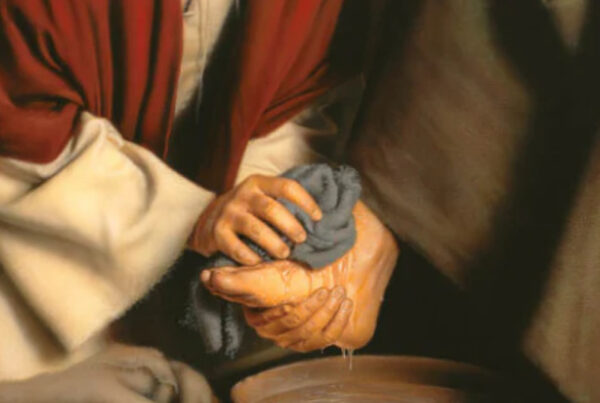Day 40
Where is the Hope?
Scripture to meditate on:
Then Job replied to the Lord:
“I know that you can do all things;
no purpose of yours can be thwarted.
You asked, ‘Who is this that obscures my plans without knowledge?’
Surely I spoke of things I did not understand,
things too wonderful for me to know.
“You said, ‘Listen now, and I will speak;
I will question you,
and you shall answer me.’
My ears had heard of you
but now my eyes have seen you.
Therefore I despise myself
and repent in dust and ashes.”
After the Lord had said these things to Job, he said to Eliphaz the Temanite, “I am angry with you and your two friends, because you have not spoken the truth about me, as my servant Job has. So now take seven bulls and seven rams and go to my servant Job and sacrifice a burnt offering for yourselves. My servant Job will pray for you, and I will accept his prayer and not deal with you according to your folly. You have not spoken the truth about me, as my servant Job has.” So Eliphaz the Temanite, Bildad the Shuhite and Zophar the Naamathite did what the Lord told them; and the Lord accepted Job’s prayer.
After Job had prayed for his friends, the Lord restored his fortunes and gave him twice as much as he had before. All his brothers and sisters and everyone who had known him before came and ate with him in his house. They comforted and consoled him over all the trouble the Lord had brought on him, and each one gave him a piece of silver and a gold ring.
The Lord blessed the latter part of Job’s life more than the former part. He had fourteen thousand sheep, six thousand camels, a thousand yoke of oxen and a thousand donkeys. And he also had seven sons and three daughters. The first daughter he named Jemimah, the second Keziah and the third Keren-Happuch. Nowhere in all the land were there found women as beautiful as Job’s daughters, and their father granted them an inheritance along with their brothers.
After this, Job lived a hundred and forty years; he saw his children and their children to the fourth generation. And so Job died, an old man and full of years. – Job 42
Devotional:
Today we read the final chapter in this destabilizing and mysterious conversation about pain, suffering and God’s work in his universe.
The book of Job ends where we should begin in our conversations with God; at a place of repentance.
In the first three verses of this reading, Job acknowledges that God is sovereign over all aspects our lives. Job confesses that he is guilty of speaking of things he did not understand. Please don’t miss this part. Job’s confession, that “this is all too wonderful for me,” comes while he is still in the midst of his suffering. At this point in the narrative –nothing– has been restored to Job. He is humbled and quiet before God. Not by God’s actions or his redemptive, restorative work, but by God’s overwhelming presence. By God himself. Alone.
Job has learned that he must bend, and relinquish whatever he thinks he controls of his life to Almighty God.
This is a powerful lesson for us all. Whatever control we think we exercise over our lives, our possessions or our children, it is only for a season. Ultimately, it all rests in the hands of God. Our relinquishment is only a matter of our recognition of the preordained fact of it.
But God’s revealed truth to us is more than the book of Job. This is only part of the wisdom of God. The full counsel of scripture would draw us onward to the cross of Christ, and ultimately to the words of the Apostle Paul.
“Yet what we suffer now is nothing compared to the glory he will reveal to us later. For all creation is waiting eagerly for that future day when God will reveal who his children really are.” – Romans 8:18-19
Key Verses:
Then Job replied to the Lord:
“I know that you can do all things;
no purpose of yours can be thwarted.
You asked, ‘Who is this that obscures my plans without knowledge?’
Surely I spoke of things I did not understand,
things too wonderful for me to know.” – Job 42:1-3
Questions to ponder:
- What have you learned about suffering from Job’s story?
- How has this book challenged you?
- Has your understanding of God’s work in his world shifted in anyway?


